What do I value in my dance practice—what is non-negotiable?
What would I lose if I did not dance—why do I dance?
These questions, posed by the great Faustin Linyekula in a series of workshops and conversations mid MFA-program, unraveled a rich and deep reflection. By using the crossroads as a structuring logic, I created the below visual representation that helped me make sense of these questions.
THE CROSSROADS ✚
A space of in-betweeness. Liminality. Possibility.
The cross is a symbol we find again and again in spiritual practices throughout the world.
I am particularly interested in how it manifests in Afro-Latin cultures, whose spiritual ancestry is greatly rooted in the West African Yoruba tradition of Ifa. As my elders have taught me, the cross in Ifa (and its descendants, Candomblé, Lukumi, Voudon) symbolizes two spectrums that meet at the center, one spectrum that represents past <--> future and the other spirit <--> earth. A person is at their happiest/healthiest when they are in balance amongst these four points.
The cross also symbolizes Eshú, orishá (deity) of the crossroads. A trickster by nature, Eshú opens possibilities and communicates between earth and the divine.
In this organization, I am relating each of the four points to a core value of my dance practice and assigning them one of the four elements—Lineage (earth), Process (water), Tension (fire), and Liberation (air). And at the intersection, enacting as/with/through/alongside Eshú, is dance.
CORE VALUE: LINEAGE (earth) 🌱
Where do my dance practices come from? Who are my teachers and elders? How is my work living in relationship to those who have come before me, and indeed, paved the way for me?
This core value could also be called ancestry or a politics of citation. Understanding that dance does not (and cannot) exist in a vacuum, we must reflect and be responsible as dance artists for who and what we are citing in our work. To let go of this core value is to run the risk of cultural appropriation, plagiarism, or buying into the white capitalist notion of individualism, i.e. the “genius artist”.
CORE VALUE: PROCESS (water) 💦
To be in process is to be constantly shifting and evolving. Western capitalist culture places much greater value on product over process. It encourages constant “production” which requires a formulaic way of working that has little or no space for experimentation and failure. Without these two things, we run the risk of getting stuck in unhealthy and ineffective ways of working that are not aligned with our values (and probably running us into the ground).
Am I making space for process and reflection in my work? Am I open to the possibility of shifting the way I am working? How can I value question-asking over answer-seeking? Am I learning from past mistakes or simply re-enacting the same patterns for the sake of “saving time” and efficiency? In this moment, do I need to pause and reflect or fire up and go?
Another way to think about this core value could be praxis. To be in praxis is to find fluidity and connection between practice and theory; to do-reflect-do-reflect-do continuously and cyclically.
CORE VALUE: TENSION (fire) 🔥
In Theater of the Oppressed, the person leading a workshop or creative process is never called a facilitator. They are called Jokers. This is because the word “facilitator” comes from the Latin word facil, meaning easy. A facilitator, then, is expected to bring ease into a process. Theater of the Oppressed is not interested in this. Instead, it is interested in what we might call “difficultaters”, people who are problematizing and questioning ideas so as to create as many alternatives possible. Playful, creative, provocative—a joker.
I start from the premise that systemic oppressions are always already present in our lives (“the personal is political” ring any bells?). So what would happen if we leaned into that tension instead of ignoring it? If we “stoked the fire” and never settled for final answers, but embraced (playful) criticality as a practice? Could we generate more strategies and possibilities for survival and resistance?
CORE VALUE: LIBERATION (air) 🌬
The orishá Oya is the deity of the winds and storms. She represents profound transformation. Not small changes, but irreversible shifts, like the kind that comes after a hurricane—it annihilates everything, forcing us to re-build from the ground up.
I am interested in a dance practice that is working towards this profound transformation, what I see as personal and collective liberation. Because as Audre Lorde said, “I am not free while any woman is unfree, even when her shackles are very different from my own”.
To feel change like a powerful gust of wind, as thousands of people mobilize in the streets overnight.
To feel change subtly, as your breath slows down, air flowing through your nostrils, lungs and belly, returning you to your body.
To be free like element air.
Can our dance practice support, instigate, enact this?
THE INTERSECTION: DANCE (eshú) ✚
Like Eshú, dance lives at the intersection of these four points.
When we are too firey in our work, we burn out. When we are too concerned with lineage, we get stuck. When we are too fluid, the work loses its shape. When we are too airy, we lose our ground.
Dance is the constant movement and interplay between all four values/elements.
Always tricking us, always surprising us.
Generating endless possibilities.






